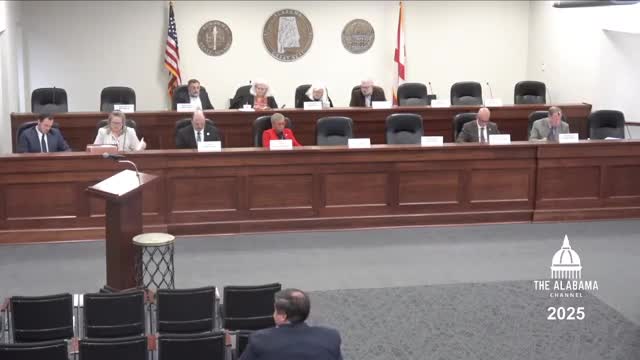Committee flags gap in licensing for spoken-language interpreters, plans follow-up with board
Get AI-powered insights, summaries, and transcripts
Subscribe
Summary
Senators and representatives told the committee they will explore adding oversight for spoken-language interpreters and translators, which currently lack a statewide licensing requirement for non-sign-language interpreters; members said they will meet with the board and report back before proposing statutory changes.
Committee members told the panel there is no consistent statewide licensing or regulatory scheme for spoken-language foreign-language interpreters (distinct from sign-language interpreters and transliterators) and that courts and other agencies rely on a patchwork of certification lists.
A member stated the Alabama Administrative Office of Courts maintains a mix of —master certified, conditionally certified— and other lists, but that spoken-language translators who perform courtroom and other public-facing interpretation often have no licensing requirements and —you don't know whether that person is interpreting correctly because they are not certified.— Senator Coleman Madison and other members said they plan to consult with the existing board for interpreters and transliterators to determine whether the spoken-language function could be incorporated into that board or whether a separate board or statutory scheme is needed.
Senator Coleman Madison said the two options are to (1) ask the current board whether it could accept a subcommittee or an amendment to cover spoken-language interpreters, or (2) if that would not be appropriate, to explore establishing a separate regulatory board. No formal motion was adopted; committee members instructed staff and sponsors to reach out to the board, convene discussions with stakeholders and report back to the sunset committee with recommendations.
Committee members noted related policy questions—including standards, testing, certification categories and compensation mechanisms for court-appointed interpreters—should be addressed as part of any legislative or regulatory proposal. The committee did not vote on statutory language at this meeting but recorded intent to reopen the issue pending board feedback.
